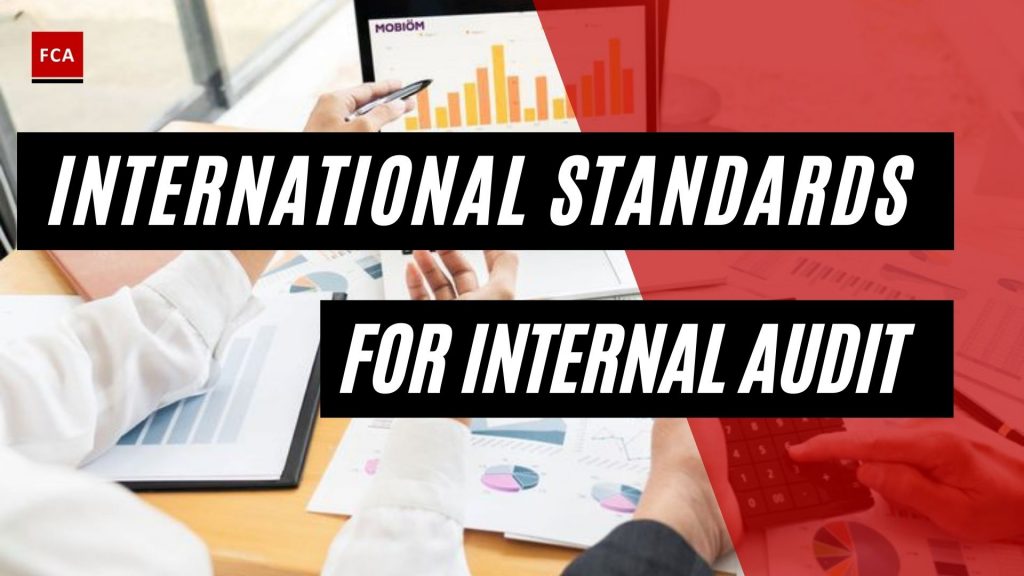International Standards for Internal Audit are based on principles and provide a framework for performing and promoting internal auditing.
Overview of International Standards for Internal Audit
Just as in accounting, we have International Financial Reporting Standards (IFRS) issued by the International Accounting Standards Board (IASB). The IIA issues International Standards for the Professional Practice of Internal Auditing. These standards brief the objectives of an internal audit function, the possible roles that an internal audit function can play, and how auditors are supposed to carry out the required responsibilities. You must be phobic about these standards as internal auditing standards are only around 27 pages (unlike IFRS that have various volumes).
Traditionally, internal audit was a policing role, there to find shortcomings in the operations of the organization. However, it has evolved to a more trusting role. Internal audit now, rather than being there to police, acts as a trusted advisor of the organization, working to achieve an organization’s objectives.
Keep in mind this changing environment of the internal audit is coded with letters ‘A’ and ‘C’. A marks standards dealing with assurance services of the internal audit department. C marks standards dealing with consulting services of the internal audit department.
Why International Standards for Internal Audit emerged
International Standards for Internal Audit were designed to:
- Deliver a foundation for performing and developing a wide range of value-added internal auditing services,
- Form the basis for the appraisal of internal audit performance,
- Guide adherence to the mandatory elements of the internal auditing standards issued by IIA, and
- Foster improved organizational processes and operations
The International Standards for Internal Audit also define the independence and objectivity of internal auditors. Internal auditors must remain independent and perform their work objectively. Independence is the liberty from circumstances that intimidate the capacity of the internal audit activity to conduct internal audit responsibilities impartially. To achieve this level of liberty required to effectively conduct the duties of the internal audit activity, the Chief Audit Executive — the head of the audit department — has direct and unhindered access to senior management and the board. This can be achieved through a dual-reporting relationship. Please note that threats to independence must be managed at all levels including that of the individual auditor, engagement, functional, and organizational.

Objectivity in Internal Audit
The objectivity of the International Standards for Internal Audit internal auditor is an unbiased viewpoint that allows internal auditors to perform engagements in a way that quality is not compromised. Internal auditors do not subordinate their decision on audit matters to others so that objectivity may be held. Threats to objectivity need to be controlled at the individual auditor, engagement, functional, and organizational levels.
In addition to following the International Standards for Internal Audit, internal auditors are also required to follow the code of ethics. The code of ethics encompasses four principles: integrity, objectivity, confidentiality, and competency.
Integrity means that internal auditors must conduct their tasks with honesty, diligence, and responsibility. It covers the fulfillment of legal compliances. Integrity means internal auditors should not engage in illegal activity or in acts that are disreputable to the profession of internal auditing or the organization. It also asks that auditors remain sincere to the organization and respect and contribute to its legitimate and ethical objectives.
The principle of objectivity of International Standards for Internal Audit forbids internal auditors to be part of any task or relationship that may diminish or be believed to diminish their unbiased assessment. Further, the internal auditor shall not accept anything that may diminish or be presumed to diminish their professional judgment.
The line of work of internal auditors often provides them with information that is not accessible to other people. Consequently, they shall be prudent in the use and protection of information acquired in the course of their duties. Further, internal auditors shall not use the information for any personal advantage or in any manner that would be conflicting with the law or damaging to the legitimate and ethical objectives of the organization.
Finally comes the ethical principle of International Standards for Internal Audit competency. It dictates that auditors should engage only in those activities in which they have the necessary skills and experience. This also requires auditors to keep themselves updated, and that they shall frequently improve their expertise and the effectiveness and quality of their services.
Final Thoughts
The standards cover a wide range of auditing topics, such as respective responsibilities, audit planning, Internal Control, audit evidence, utilizing the work of other experts, audit conclusions and audit reports, and standards for specialized areas.








